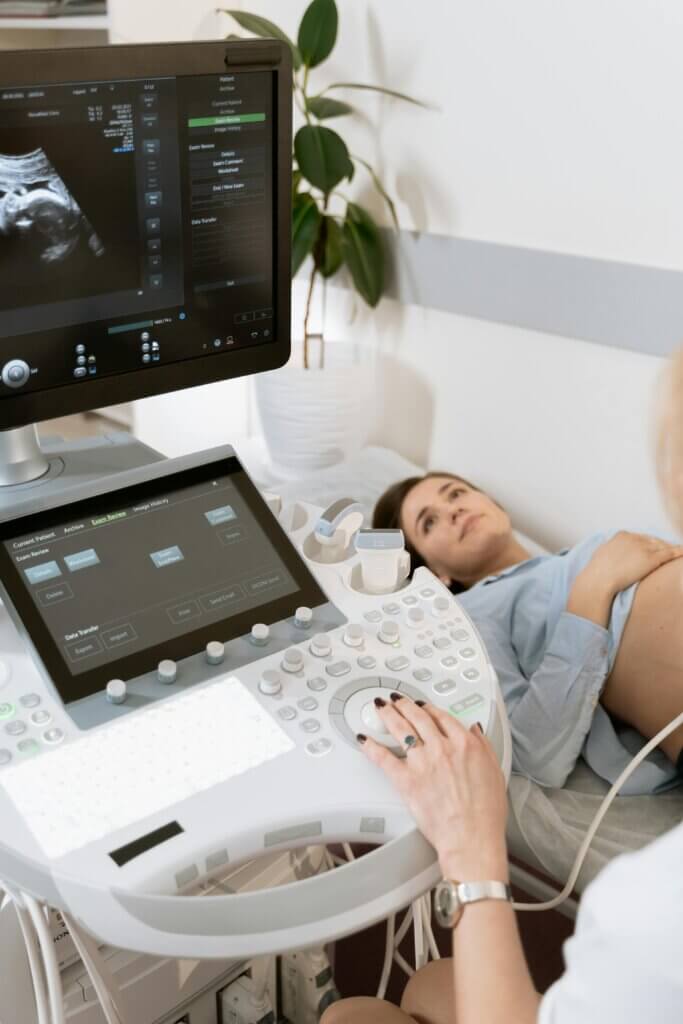Despite significant progress, maternal mortality remains a global health challenge. Over 800 women die daily from preventable causes related to pregnancy and childbirth. Lack of access to quality maternal healthcare is a major contributing factor. Bridging gaps in the availability, accessibility, and quality of antenatal, delivery, and postpartum services could significantly reduce maternal and newborn deaths worldwide.
Advancements in mobile technology have transformed healthcare delivery around the world. Mobile health (mHealth) solutions like healthcare apps are becoming invaluable tools for providing care and health information to underserved populations. The surge in mobile phone access globally creates new opportunities to leverage these technologies to strengthen maternal health outcomes.
Mobile health apps provide a promising way forward in overcoming barriers to high-quality maternal healthcare. Features like educational content, gestational trackers, and telemedicine offer innovative approaches to reaching women in their homes with potentially lifesaving care and advice throughout pregnancy, childbirth, and the postpartum period. This article analyzes the current landscape of mHealth apps targeted at maternal health and demonstrates their vast promise in making motherhood safer across the globe.
Mobile Health Apps for Maternal Health
Dozens of mobile apps today provide a variety of features to support women during pregnancy and postpartum care. Some apps simply offer guidance on baby names or nursery decoration, while more advanced ones provide specialized maternal healthcare services like gestational calendar reminders, fetal kick counters, contraction timers and period trackers, live nutrition analyses,
3D model fetal development breakdowns, postpartum care instructions, breastfeeding tips, and more. Some apps even facilitate audio/video telemedicine consultations with certified medical professionals. As the industry matures, maternal health apps are becoming more comprehensive and patient-centered. Let’s dive into how these apps can help support maternal health.
Access to Information and Education
Maternity apps grant expectant mothers continuous access to crucial health information throughout pregnancy that promotes positive behaviors and outcomes. Women can learn about critical topics like nutrition needs, lifestyle precautions, danger signs, and more at any time of day through their mobile devices. Digestible content through text, videos, and graphics makes key recommendations easy to consume and retain.
Educational content on prenatal and postnatal care
Apps educate women through each phase of maternity care—preconception, antenatal, intrapartum, and postnatal. Some apps provide week-by-week guides on developmental milestones and self-care practices from conception through the year after birth. Others focus specifically on birth preparation, breastfeeding techniques, newborn and postpartum care, immunization, and more through visual explainers.
Interactive features for understanding pregnancy stages and fetal development
3D model applications allow mothers to visualize fetal growth and gain familiarity with anatomy. Fetal kick counters that use phone sensors let mothers monitor movement milestones. Menstrual and ovulation trackers provide fertility insights preconception. Such interactive tools sustain engagement while imparting knowledge.
Remote Monitoring and Telemedicine
Remote monitoring allows providers to intervene early when abnormalities arise and gives women greater control over tracking their health indicators. Apps can sync with wearable devices, tracking vitals and connecting patients directly with their healthcare teams for telescreening and consultations. Enabling this intervention access removes geographic and systemic barriers.
Integration with telemedicine services
Partnerships with telemedicine providers within apps facilitate audio/video consultations with certified obstetricians/gynecologists, nurses, and health coaches. Direct provider interactions build trust and care continuity while still lowering access barriers for underserved groups. It also reduces unnecessary facility visits through remote triaging of complications. Expanding such e-consult models is impactful.
Tracking and Managing Health Metrics
Closely monitoring key biometrics and symptoms from prenatal through postnatal periods enables the early detection of potentially dangerous abnormalities like gestational hypertension, preeclampsia, gestational diabetes, or iron deficiency anemia.
User-friendly mHealth apps allow women to thoroughly track critical metrics like blood pressure trends, blood glucose levels, weight gain patterns, hematocrit levels and more themselves, synced from Bluetooth-enabled home health devices. Aggregating such data longitudinally provides much richer insights versus sporadic in-clinic readings. This strengthens clinical decision-making for just-in-time interventions.
Features in apps for monitoring weight, blood pressure, and glucose levels
Rather than rely on manual/self-reported data inputs, which can be inaccurate, the latest apps seamlessly sync with connected devices like smart scales, wrist blood pressure monitors, and glucometers to track progress. Users only need to open the app to automatically log readings.
Backend analytics visualize measurable trends over time and flag any concerning fluctuations through automated alerts. Overdue measurement notifications also increase adherence. More advanced apps even offer real-time analysis, risk assessments, and triaging recommendations when dangerous thresholds are crossed.
Alerts and reminders for medication and appointments
Configuring customizable app alerts that nudge users via push notifications facilitates better compliance with care protocols, saving lives. In addition to medication and supplement reminders, apps can prompt women to log health metrics, attend upcoming checkups, prepare for delivery through hospital bag checklists as due dates near, and provide postpartum healing guidance. Such friendly automated nudges foster more disciplined self-care where focus, organization, or health literacy are persistent barriers, especially for first-time mothers.
Enhancing Doctor-Patient Communication
 Maternity apps allow for seamless, ongoing dialogue between patients and their obstetric care team in between appointments. Secure in-app messaging replaces playing phone tag, with group chat functionality looping in all specialists on a case simultaneously.
Maternity apps allow for seamless, ongoing dialogue between patients and their obstetric care team in between appointments. Secure in-app messaging replaces playing phone tag, with group chat functionality looping in all specialists on a case simultaneously.
This saves substantial time for both parties by creating a continuous digital conversation thread on non-urgent queries while still triaging medical emergencies faster through automated symptom checker alerts. Patients can also snap photos of concerning symptoms for remote diagnosis.
Sharing health data for better clinical decision-making
Digitizing key biometric data like vitals along with recording risk assessment survey results, health history, medications, past obstetric complications, and psychosocial issues within specialized apps creates more holistic, longitudinally-rich patient profiles.
This arms providers with better insights to determine proper interventions based on detecting patterns in historical trends rather than relying solely on snapshots from infrequent in-person appointments. Streamlined data integration with electronic health records is also helping providers access patient app data faster at the point of care.
Impact on patient engagement, satisfaction, and health literacy
The convenience, transparency, and expanded provider access mobile platforms facilitate dramatically improved patient satisfaction rates and engagement in their own care plans. Sustained mHealth app usage can foster stronger patient-provider relationships, trust in healthcare teams, positive perceptions of care quality, and greater awareness of health threats–ultimately catalyzing better compliance with care protocols, preventative health behaviors, and self-efficacy in managing complicated pregnancies.
Pregnant and postpartum women’s digital health literacy similarly expands from apps disseminating bite-sized guidance 24/7, leading to measurable knowledge gains, particularly for first-time mothers.
Addressing Postpartum Challenges
 Too often overlooked, maternal mental health requires proactive monitoring because approximately 1 in 7 women suffer from postpartum depression. Apps can facilitate regular depression and anxiety screenings with validated scales and then instantly analyze responses to detect clinical warning signs early. Around-the-clock chatbots and on-call counseling provide affordable first-line support between appointments while women manage newborns.
Too often overlooked, maternal mental health requires proactive monitoring because approximately 1 in 7 women suffer from postpartum depression. Apps can facilitate regular depression and anxiety screenings with validated scales and then instantly analyze responses to detect clinical warning signs early. Around-the-clock chatbots and on-call counseling provide affordable first-line support between appointments while women manage newborns.
Online peer groups foster understanding and solidarity when struggling. By centralizing mood-tracking history within apps through weekly self-evaluations, both patients and clinicians better recognize negative thought and behavior patterns so treatments can be quickly optimized, preventing cases from becoming severe through data-driven follow-up care.
Resources for breastfeeding and infant care
Comprehensive apps dedicate entire subsections to evidence-based infant feeding best practices, including techniques and positions for proper latching, pumps, and milk storage guidance, decoding newborn cries, introducing age-appropriate balanced solid foods, managing infections, tracking developmental milestones, plus recommended immunizations through interactive checklists.
Sleep pattern analysis tools log night wakes and naps to inform schedule adjustments. Augmented reality can even demonstrate how to bathe, swaddle, and soothe the baby. Such wraparound support and clinical expertise nurture more confident, skilled first-time parents in areas today’s stretched healthcare systems do not have the bandwidth to educate thoroughly on.
Community support features in apps
Stress for an expectant or new mother can be all-consuming, but strong social ties protect maternal mental health. Enabling anonymous peer discussion groups within apps provides solidarity through shared experiences, creating safe spaces to ask judgment-free questions.
Social networking feeds allow families to crowdsource local childcare or pediatrician recommendations. Logging multigenerational family health history within specialized apps can analyze hereditary traits, too, personalizing health insights. Over time, these supportive tools cultivate tight-knit digital communities so mothers never feel alone on the parenting journey.
Overcoming Barriers and Challenges
Ensuring inclusivity and maximum access to maternal health apps requires concerted efforts to minimize economic and technological barriers at scale. Apps should be free or low-cost to users, funded by public health agencies, nonprofits, impact investors, and public-private partnerships.
Offline functionality assists populations with limited internet connectivity. Governments can especially tariff data costs to essential health apps and fund device access either through direct provision or microfinance partnerships. Annually evaluating differences in usage patterns by income group and geography will inform efforts to close remaining gaps.
Data privacy and security concerns
To build user trust that encourages the input of sensitive pregnancy-related personal information, apps must reassure women through terms of service communications and easy-to-understand consent flows that explain end-to-end data governance. Encryption to global security standards, secure access portals, multi-factor authentication, and low-risk anonymization protocols should protect her private medical data.
Transparency on the backend analytics performed is essential, allowing mothers to control preferences. Independent ethics audits can validate that privacy contexts do no harm. Ongoing safety improvements and responsiveness to new threats should be a cornerstone of app development.
Overcoming cultural and educational barriers
For success, maternal health apps must be context-aware through an in-depth understanding of target users’ cultural touchpoints, languages, health beliefs, lived realities, and literacy skills. This guides tailored content and design choices that feel familiar and relevant, overcoming engagement barriers more generic tools face.
All instructions should provide visual guidance with graphics given varying text comprehension levels across end-users. Vernacular scripts, dialects, and colloquial phrases resonate most strongly. Apps pre-tested via focus groups ensure appropriateness. The impact depends on these human-centered approaches to dismantle sociocultural barriers endogenous to regions, making lifesaving health support accessible to all.
Future Directions and Innovations
Leveraging artificial intelligence and machine learning to personalize and optimize maternal healthcare app features shows enormous promise. As these apps collect more user data over time, predictive algorithms can offer better-tailored recommendations, risk assessments, and notifications for each woman based on patterns in her own health history and demographics. Chatbot capabilities are also continuously expanding.
Compatibility with inexpensive, accessible wearable trackers and sensors allows maternal apps to collect biometrics like heart rate in real-time rather than rely on manual data entry. Syncing data from smartwatches, bands, and rings provides richer, more reliable trend analysis. As wearables evolve, tighter integration will emerge.
Widespread adoption of thoughtfully designed, inclusive maternal health apps over the next decade has the potential to revolutionize women’s access to vital prenatal through postpartum support and advice globally. Apps promise to nurture mentally and physically healthier mothers and babies by connecting them to the formal health sector, their communities, and health knowledge in unprecedented ways, significantly driving down preventable morbidity and mortality.
Frequently Asked Questions (FAQs) on Mobile Health Apps for Maternal Health
- What are mobile health (mHealth) apps for maternal health, and how do they assist expectant and new mothers?Mobile health apps for maternal health are digital tools designed to support women through their pregnancy, childbirth, and postpartum care. They offer a range of features such as educational content, health tracking, telemedicine consultations, and interactive tools for understanding pregnancy stages and fetal development. These apps provide continuous access to vital health information, assist in tracking important health metrics, and enable remote consultations with healthcare professionals.
- How do educational features in maternal health mobile apps benefit pregnant and postpartum women?The educational features in these apps provide women with crucial information on various aspects of pregnancy and postpartum care. They offer guidance on nutrition, lifestyle precautions, danger signs during pregnancy, and postnatal care. Interactive tools like 3D models and gestational trackers help women understand their pregnancy stages better. This continuous access to information promotes positive health behaviors and outcomes.
- Can maternal health mobile apps replace regular visits to healthcare providers?No, these apps are not intended to replace regular visits to healthcare providers. Instead, they supplement traditional care by providing additional resources and support. They enable remote monitoring and telemedicine consultations, which can be particularly beneficial for women in remote areas or those with limited access to healthcare. However, regular in-person check-ups are crucial for a healthy pregnancy and should not be replaced by app-based care.
- What kind of health metrics can maternal health mobile apps track, and how does this help?These apps can track a variety of health metrics, such as blood pressure, blood glucose levels, weight, and fetal movements. By syncing with Bluetooth-enabled health devices, these apps allow for accurate and continuous monitoring of these metrics. This can lead to early detection of potential health issues like gestational diabetes or hypertension, enabling timely intervention and management.
- What future innovations are expected in the field of maternal health apps?Future innovations in maternal health apps include the integration of artificial intelligence and machine learning to personalize care and optimize app features. These technologies can enhance predictive capabilities and provide more tailored recommendations and notifications. There is also a growing trend towards compatibility with wearable trackers and sensors, allowing for real-time collection of biometrics, which can offer more comprehensive health monitoring and analysis.






